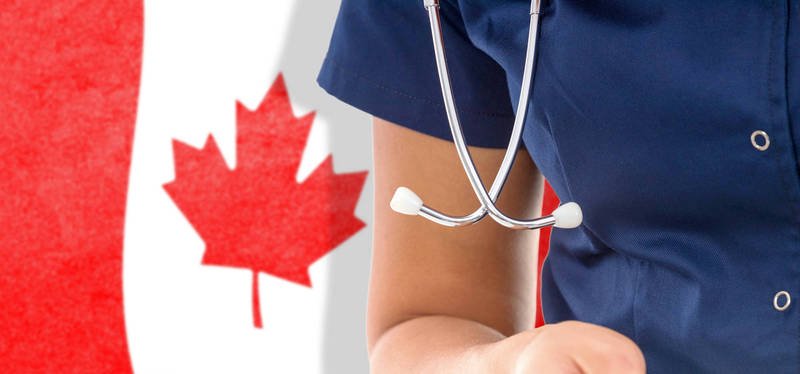Canada's national health care medical system is facing a crisis of insufficient resources. The Canadian Broadcasting Corporation reported the advantages of Taiwan's health care in a special article, calling for the need to learn from Taiwan. Diagram.
(Picture taken from freepik)
[Central News Agency] Canada's national health care system, which was once highly praised internationally, is now facing a major crisis of serious shortage of resources.
The Canadian Broadcasting Corporation (CBC) reported the advantages of Taiwan's health care in a special article, saying that in the past, Taiwan learned from Canada to create a health care system, but now Canada needs to learn from Taiwan.
CBC reported that in the 1980s, Taiwan was actively improving its health care system. An expert group led by Harvard economics professor William Hsiao was established to assess the health care system in six countries, including the United States, the United Kingdom, Germany, France, Canada and Japan. Health system research led to Taiwan's decision to adopt Canada's single-payer system to build its own universal health insurance.
Please read on...
The article said that the most successful thing about Taiwan's health care system is that it is "good at controlling costs."
In 2017, Taiwan's National Health Expenditure (NHE) was 6.1% of GDP; the OECD average for that year was 8.8%, and Canada's NHE was as high as 10.4%.
Canadian spending is not only high, but inefficient.
In the past 20 years, the problem of long waiting time for medical treatment has become more and more serious. On the contrary, Taiwan not only has good cost control, but also has very high efficiency of medical treatment.
Mrs. Zhang, who lives in Vancouver, used the word "terrible" to describe Canada's medical problems.
She told the Central News Agency: "I have had pain in my left elbow for more than a year. I waited in line to see an orthopaedic specialist for three months, and then I had to wait for 10 months to get an ultrasound. My minor illness became severe. If I were in Taiwan, The entire medical examination course can be done in just a few days.”
What's even more outrageous is that many Canadians can't even find a family doctor. The original family doctor may have retired or moved, but newly graduated medical students are the least willing to become family doctors.
Xingqi Shanren, a professor at the University of British Columbia's School of Oral Health, is also one of the victims and has been unable to find a family doctor for more than two years.
She told the Central News Agency: "The Canadian medical system has many problems, high costs but uneven distribution of resources. For example, doctors and nurses may be considered high-paying families, but other nurses, laboratory technicians and other personnel are paid a lot less, and they will choose to change careers. "
"Hidden stratification is also a drawback. For example, the same doctors have the lowest status of family doctors. In addition, doctors look down on nurses, so in the early stage of the outbreak of COVID-19 (coronavirus disease 2019), the quality of masks used by doctors is better than that used by nurses. Yes, it caused an uproar."
Alika Lafontaine, president of the Canadian Medical Association, also said the system is in danger of collapsing.
Shanren Xingqi echoed the CBC article's suggestion that Canada should follow Taiwan's process of learning from other countries and rely on a diverse team of experts to formulate effective policies.
She said: "Canada's health care system is seriously clogged with liquidity, and it must be reformed by regrouping the economy, politics and health care personnel. It can't just have a group of health care workers discussing research behind closed doors. Public health needs health care, society and economy. Scientists and politicians come together to brainstorm broad ideas.”
Canada's National Post reported on the 28th that Taiwan's impressive results in fighting the epidemic.
Even during the period when the Omicron variant was widespread, the mortality rate per million was 456 in Taiwan, 1185 in Canada, and 3135 in the United States.
The article also praised Taiwan's epidemic data for being very transparent, and praised that Taiwanese people can wear masks voluntarily, unlike Canada where large-scale protests and conflicts occurred over mask and vaccine policies.
☆Do not miss health news, follow the fan page by like.
☆For more important medical news, please visit the free health website.
keywords
Canada
health care
medical system
Organisation for Economic Co-operation and Development (OECD)
related news
